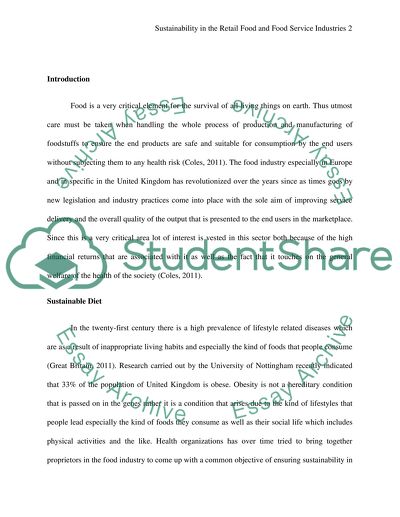Cite this document
(Sustainability in the Food Industry Term Paper Example | Topics and Well Written Essays - 2000 words, n.d.)
Sustainability in the Food Industry Term Paper Example | Topics and Well Written Essays - 2000 words. Retrieved from https://studentshare.org/marketing/1673135-reflect-on-the-need-for-sustainability-in-the-retail-food-and-food-service-industries
Sustainability in the Food Industry Term Paper Example | Topics and Well Written Essays - 2000 words. Retrieved from https://studentshare.org/marketing/1673135-reflect-on-the-need-for-sustainability-in-the-retail-food-and-food-service-industries
(Sustainability in the Food Industry Term Paper Example | Topics and Well Written Essays - 2000 Words)
Sustainability in the Food Industry Term Paper Example | Topics and Well Written Essays - 2000 Words. https://studentshare.org/marketing/1673135-reflect-on-the-need-for-sustainability-in-the-retail-food-and-food-service-industries.
Sustainability in the Food Industry Term Paper Example | Topics and Well Written Essays - 2000 Words. https://studentshare.org/marketing/1673135-reflect-on-the-need-for-sustainability-in-the-retail-food-and-food-service-industries.
“Sustainability in the Food Industry Term Paper Example | Topics and Well Written Essays - 2000 Words”, n.d. https://studentshare.org/marketing/1673135-reflect-on-the-need-for-sustainability-in-the-retail-food-and-food-service-industries.


